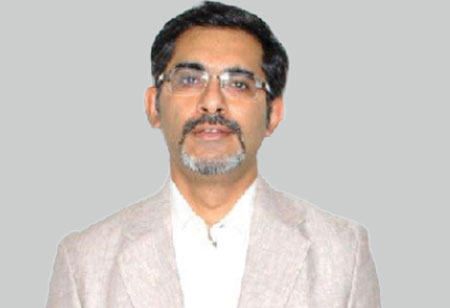By Roopesh Madan, Vice President - Information Technology, Claris Lifesciences

Roopesh Madan, Vice President - Information Technology, Claris Lifesciences
Finding a good doctor on time is one of the primary requirements of a developed society. However, in India, this process is not yet up to speed as people still have to rely on "word-of-mouth" for seeking out a good doctor. With the population moving across towns and cities, it becomes imperative that they have access to information regarding credibility of a doc-tor and healthcare facility. The need of the hour is to find a way to enable an ecosystem that allows LinkedIn or a Facebook kind of profile for a good doctor and healthcare facility while preserving the privacy of the patient who shares his/her experi-ence. With social media and cloud infrastructure on the rise, we believe that the same should be leveraged to enable a patient to seek out a good doctor and healthcare facility. Lack of advertisement rights for medi-cal professionals is keeping the good work - which the healthcare profes-sionals are putting in - out of reach of genuine and needy people.
Organ donation also needs a lot of awareness and social communi-cation to become a life enhancing (eg. eye, liver, kidney donation) and life saving contributor. A recent inci-dent in Chennai, where with the precise coordination between surgeons of two hospitals and the city traffic police, a medical team transported a heart from Govern-ment General Hospital to Fortis Malar Hospitals in Adyar, about 12km away, in less than 14 minutes by creating a red-light free access (called "green corridor") became national news. While appreciating this, it is a matter of concern whether such things can be made a routine occurrence in our daily lives. Can there be a "108" kind of facility used for organ donation and re-ceiver match competency? Will it be possi-ble to connect an accident site and nearby hospital site with information and provide that to someone in need in another hospital?
The Injectables Mar-ket
The use of injectable medi-cines which are injected into blood directly is increasing in India. This offers faster recovery and convenience to patients. Certain lifestyle re-lated diseases like cancer are also treated with injectable medicines. There is a need to continuously educate the medical fraternity about its scientific and clinical research related information which is useful to them in their profession. So far such information used to be provided to them in the physical form, but with the advent of tablets, such information can be updated across the field force much faster and is effective in catching their attention.The life science industry in India is still a toddler as most of the companies in the sector are less than 10 years old. Both India and injectable are high-growth markets. In India, the market's growth rate is 13.7%. The injectable market is valued at US$147 billion and generic injectables is about 40% of this.
Effects of Technical Development in the Pharma Industry
The pharmaceutical industry is one of the most regu-lated ones, therefore it is governed by programmes like Good Automated Manufacturing Practices (GAMP) from an IT context as well as they also need to be compliant with pharmaceutical regulatory eco-system that mini-mizes change management to bring stability and pre-dictability in the quality of the medicines. This introduces challenges in the pace of intro-duction of new technologies. Also, the manufacturing equipments are generally designed to work for 15 to 20 years, whereas the accompanying computer technol-ogy retires in 5 to 7 years. This adds up the challenge to maintain the older technologies by manufacturers themselves. So while new technology is generally help-ful in many aspects, it ensues unique challenges to the pharmaceutical industry.
Overcoming Challenges
There is a lack of wholesome IT platforms that can be-come a backbone to cater to commercial, regulatory, manufacturing as well as market analytics. We therefore go for best-of-breed approaches and integrate such dis-crete solutions as per the requirements. Technology will help pharmaceutical companies overcome the big chal-lenges. Clinical trials are becoming more adaptive by incorporating signal detection technologies and more efficient in terms of global supply chain and forecasting.Pharmaceutical manufacturers are accountable for the medicines until they are consumed by the patients, however, visibility of the inventory across the entire supply chain is a challenge, specially at stockists / hos-pital level, since all of them have stand-alone solutions which are not designed to be a part of larger information sharing eco-system.
We believe that innovation comes with increasing adop-tion and usage of technology. "iFuel" is an IT Culture Building programme in the organization that identifies the emerging habits of IT user and shaping them to form best work practices. It is an integral part of myClaris Company's intranet platform and has been a useful con-tributor in Claris achieving "Best Places to Work" award for five consecutive times in IndiaA new approach to innovativeness together with a value proposition strategy aims to deliver high quality products to patients. Companies and organizations are beginning to invest in technology for standardization and R&D productivity as well as their marketing opera-tions.
We use cookies to ensure you get the best experience on our website. Read more...